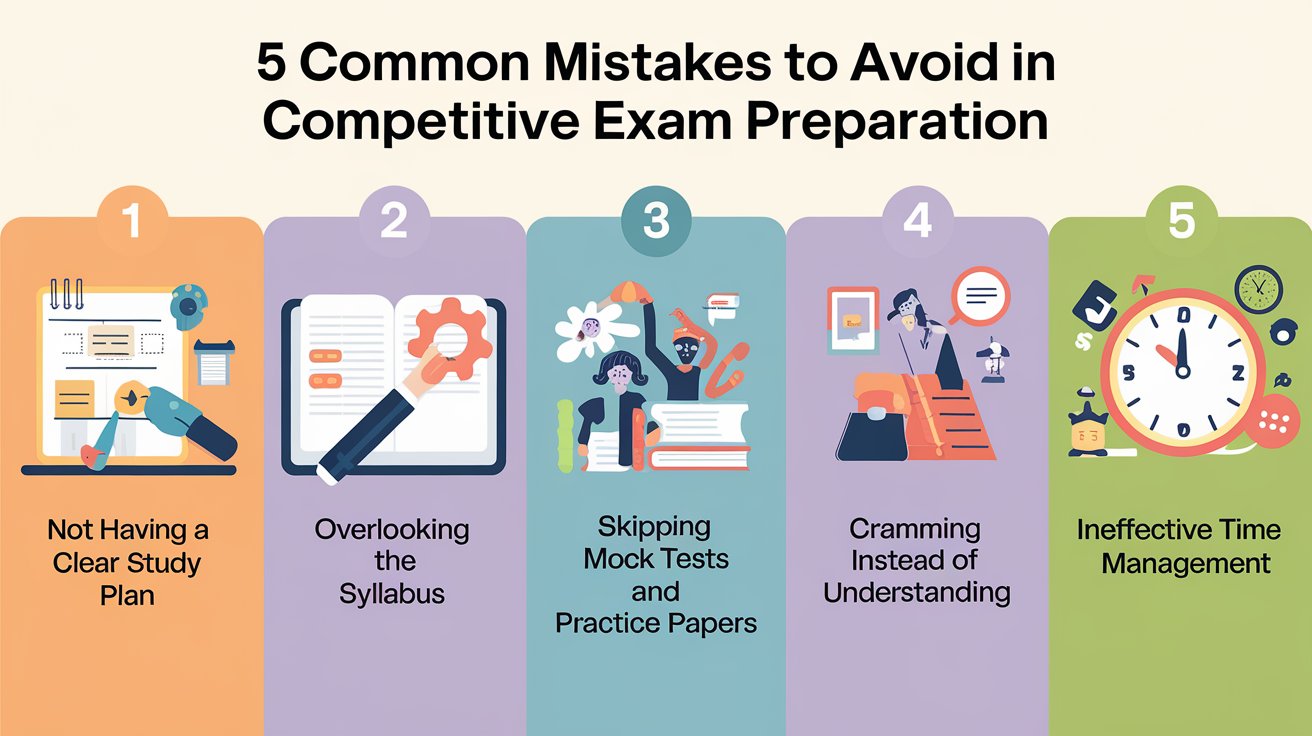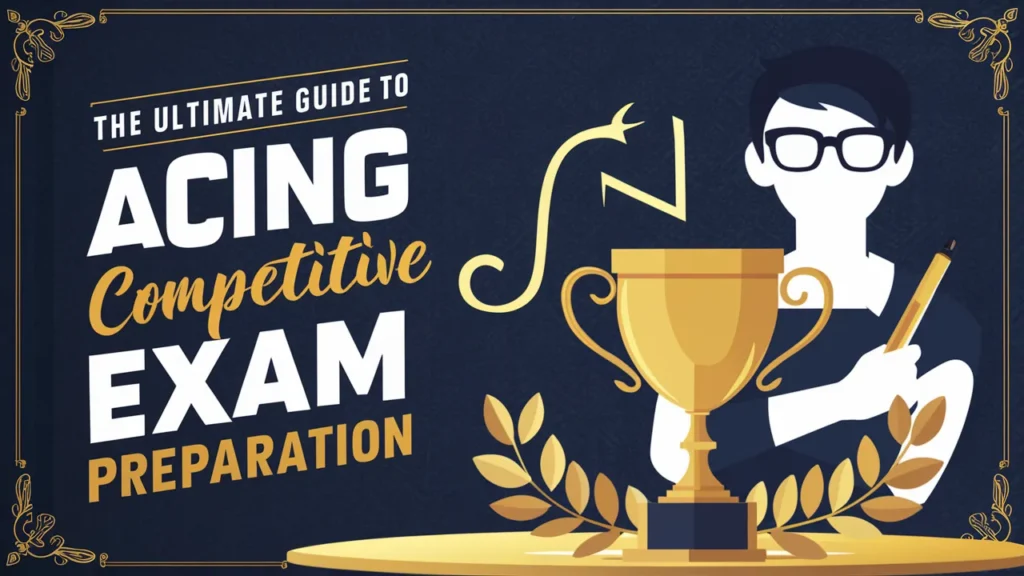
Preparing for competitive exams can be a demanding process that requires careful planning and focus. However, students often fall into common traps that can hinder their progress. In this blog post, we’ll identify five key mistakes students make during their exam preparation and provide tips on how to avoid them, ensuring a smoother journey towards success.
1. Not Having a Clear Study Plan
One of the most frequent mistakes is starting preparation without a proper study plan. Many students dive into their studies without mapping out their approach, leading to disorganization and inefficient use of time.
How to Avoid This Mistake:
- Draft a Comprehensive Plan: Break down the entire syllabus into sections and allocate specific timeframes for each topic.
- Set Daily and Weekly Goals: Structure your goals to ensure steady progress. Include both study and revision time in your schedule.
- Stay Flexible: Be open to adjusting your plan if you find certain topics more challenging than expected.
A well-organized study plan keeps you on track and helps manage your time effectively, so you avoid last-minute cramming.
2. Overlooking the Syllabus
Ignoring the official syllabus is a common error, leading students to spend time on topics that may not be relevant to their exams.
How to Avoid This Mistake:
- Get the Official Syllabus: Always start by reviewing the official syllabus provided by the exam authority.
- Prioritize Key Topics: Focus on the topics that carry the most weight based on the syllabus and previous exam papers.
- Keep Track of Changes: Stay updated with any syllabus revisions, especially if you are studying for a popular national-level exam.
A thorough understanding of the syllabus helps you focus on essential topics and saves you time on irrelevant areas.
3. Skipping Mock Tests and Practice Papers
Some students avoid taking practice tests until the very end of their preparation, which can be detrimental to their overall performance.
How to Avoid This Mistake:
- Start Early with Mock Tests: Incorporate mock tests into your study routine from the early stages of your preparation.
- Simulate Exam Conditions: Take these tests under timed conditions to mirror the actual exam experience.
- Analyze and Improve: Use the results of mock tests to identify areas of weakness and focus your studies on improving those gaps.
Mock tests are invaluable for building exam-day endurance, improving time management, and reducing anxiety.
4. Cramming Instead of Understanding
Students often turn to cramming as the exam date approaches. However, this method does not lead to long-term retention and could affect your performance if the questions require deep understanding rather than surface-level memorization.
How to Avoid This Mistake:
- Focus on Concepts: Prioritize understanding the underlying principles of each topic rather than memorizing facts.
- Use Visualization Tools: Create diagrams, flowcharts, or mind maps to visualize and retain complex concepts more effectively.
- Teach Others: One of the best ways to solidify your understanding of a subject is to explain it to someone else.
Developing a strong conceptual foundation will ensure that you can tackle even the toughest questions with confidence.
5. Ineffective Time Management
Many students fail to manage their time well, either spending too much time on easier topics or procrastinating, which results in rushed and incomplete preparation.
How to Avoid This Mistake:
- Set Time Limits: Allocate specific time blocks for each topic or subject, and stick to these limits strictly.
- Avoid Multitasking: Focusing on one topic at a time ensures that you absorb information more effectively.
- Use Time Management Techniques: Techniques like the Pomodoro method (25-minute study sessions followed by a 5-minute break) can help maintain focus and energy levels.
Proper time management ensures that you cover all the necessary topics without feeling overwhelmed or stressed before the exam.
Conclusion
Avoiding these common mistakes during your competitive exam preparation can significantly increase your chances of success. Create a clear study plan, focus on the official syllabus, regularly practice with mock tests, prioritize conceptual learning over cramming, and manage your time efficiently. By following these steps, you’ll be well-equipped to face your exam with confidence and perform to the best of your ability.
Remember, consistency and strategic planning are the keys to cracking competitive exams.


